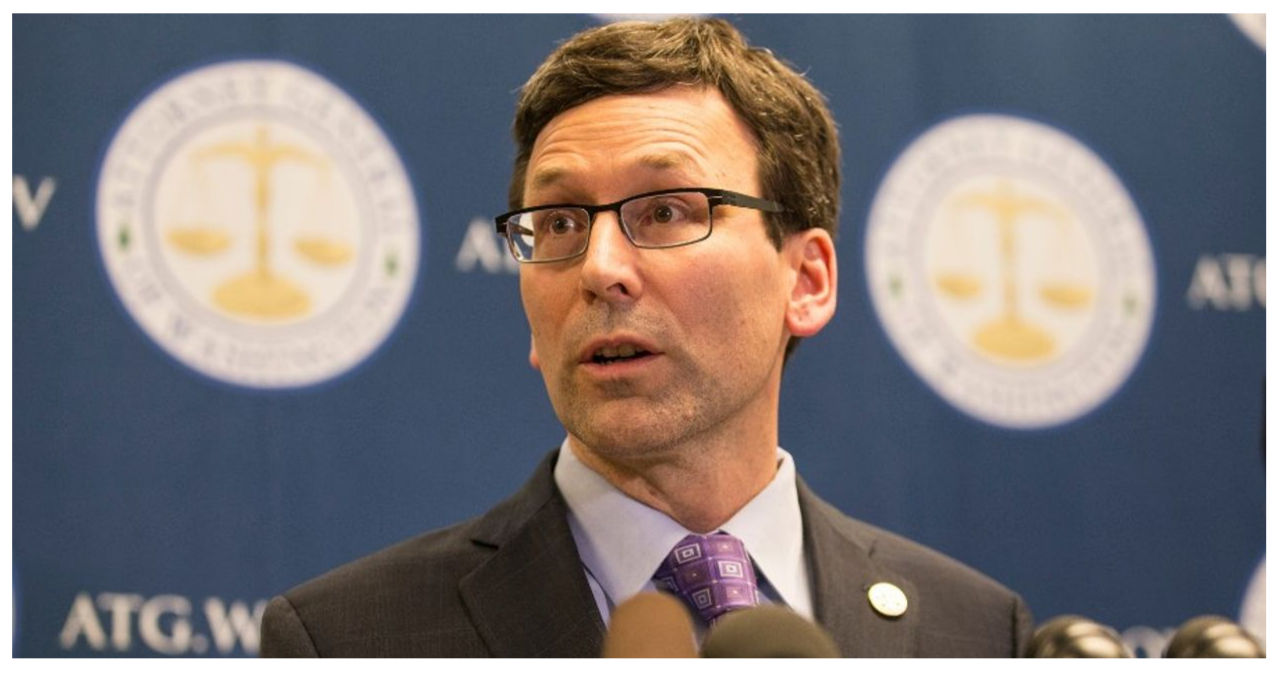Many people are perplexed by Bob Ferguson’s planned solution to address the drug epidemic. The fact that he supported drug decriminalization, which fueled the fentanyl epidemic in Seattle and the opioid problem in Washington, is puzzling. And now he says he wants to deal with the very problem he contributed to creating?
Ferguson stresses that the goals of his crisis response strategy are to combat drug trafficking and improve access to treatment for individuals. He intends to use a settlement with pharma companies—specifically, those involved in the opioid crisis—to fund this endeavor. He also plans to increase funding for multijurisdictional drug task groups. It is important to remember, too, that he had already made an effort to cut these task teams’ financing.
While it would be dishonest to call Bob Ferguson’s plan daring, it is how his campaign for governor presents it. In actuality, it is vague and appears to be taken from preexisting blueprints. Moreover, it’s hard to believe in his suggested fixes considering how inconsistent his own record is. It raises the question of why we would depend on an arsonist to put out the fire that he started.
Isn t the Bob Ferguson drug crisis plan addressing the crisis he helped start?
The catastrophic effects of fentanyl on our communities are acknowledged in the Bob Ferguson drug plan. More lives are being lost to this potent narcotic than ever before, particularly among the homeless community. Nonetheless, it appears that Bob Ferguson is unwilling to own up to his part in the concerning rise in overdose deaths.
Attorney General Bob Ferguson did not waste time in urging Democrats to see this as a great opportunity to decriminalize narcotics after the far-left Washington State Supreme Court declared the state’s felony drug possession legislation unconstitutional.
He said, “I hope Washington will reverse course and move away from the disastrous war on drugs.” It’s time to try something different and do away with the criminal penalties associated with having small amounts of narcotics for non-commercial use. I’m still hopeful that the state legislature will have the guts to make this brave and important move.
Ferguson projected that if Democrats approved his plan, nothing but good things would come of it. But in the next five, ten, or fifteen years, I feel like other state politicians will come around to supporting what I think will happen here in Washington, he continued. We quickly became aware of the events that were taking on across the state of Washington.
Federal funding will be wasted as a result of Seattle’s decision to handle the drug problem it caused, cautions Jason Rantz.
What happened when Washington adopted Bob Ferguson s drug decriminalization idea?
Democrats took a risk by decriminalizing narcotics, as advised by Ferguson. This decision had an absolutely astounding result.
The state’s epicenter, King County, had an unprecedented number of death overdoses, creating history in the process. With 1,337 sad drug overdose deaths, Seattle in particular contributed to this unprecedented number. Local authorities have responded by allocating significant funds to address the crisis’ aftermath. But instead of emphasizing therapy, the state has mostly funded Ferguson-approved harm reduction strategies. Harm reduction aims to reduce the negative consequences that come with use illegal drugs.
Actually, the strategy is dispensing drug paraphernalia like booty bumping kits, fentanyl pipes, and clean needles. It’s interesting to note that electronic cigarettes are one useful damage reduction strategy. Ferguson, however, believed that consuming vapor was riskier than smoking heroin, meth, or fentanyl.
Throughout the drug epidemic, which he helped to initiate, the attorney general remained mute and failed to recognize how it was affecting homelessness. The state of affairs became so dire that Democrats were forced to reverse the Bob Ferguson drug legalization plan in its entirety and make illicit substance usage once again illegal (albeit with less severity). Ferguson pulled away from the subject during the talks on how to undo his own scheme. He didn’t want people to know that he was a major proponent of the scheme that killed thousands of people. Ferguson’s office—not Ferguson himself—did not release a statement endorsing the withdrawal of the drug decriminalization plan until it was clear that the public was in favor of it.
Attorney General Ferguson is in support of the Legislature cooperating to create a bipartisan solution, according to a spokeswoman. Holding people accountable for drug sales, drug usage in public, and defying court-ordered treatment are the goals of this strategy. Simultaneously, it would prioritize the enlargement of our public health response to assist individuals grappling with substance use disorders.
The content by Jason Rantz draws attention to a crucial blunder committed by the Bob Ferguson campaign concerning crime.
Bob Ferguson says he supports funding, so why did he reportedly aim to partially defund drug task forces?
Ferguson’s office was instrumental in the lawsuit against opioid manufacturers that resulted in the recovery of cash for the state of Washington as part of a settlement. Though he hasn’t been held responsible for his own part in the problem, the Bob Ferguson campaign is now claiming credit for this achievement. It appears that he is counting on the electorate to avoid going too far into his background.
Even if the money has already been allotted, he can use it to communicate to voters that he still believes that treatment is more important than incarceration—a position that the majority of the community supports. Ferguson tried to cut money for multijurisdictional drug task forces, KING 5 learned, despite his pledge to increase it.
The Edward Byrne Memorial Justice Assistance Grant is a federal money source that is distributed by the Washington State Department of Commerce. Attorney General Bob Ferguson is pushing for the use of some of this grant money to improve election worker security, as reported by KING 5. Ferguson and other Democrats are drawing attention to Donald Trump, who continues to evoke strong reactions from progressive voters in Washington, rather than the crises they have produced by drawing attention to the alleged threats posed by MAGA supporters. The sixteen active task groups’ operating costs are the main reason for the approximately $3 million in current financing.
The Skagit County Sheriff’s Office’s top criminal deputy, Tobin Meyer, expressed his dissatisfaction with the terrible effects of fentanyl on local communities. It seemed paradoxical to him as the commander of the drug task force to have to fight for financing in the face of the devastation this drug was causing. He couldn’t help but be amazed at the circumstances.
Jason Rantz discusses his observations on Bob Ferguson’s ongoing setbacks in his political fight against law enforcement.
Isn t the flip-flopping mind boggling?
Ferguson’s dream of becoming governor has always been quite strong. He used the Washington State Office of the Attorney General as a political campaign tool, carefully crafting stances that he could use as talking points when Gov. Jay Inslee announced his resignation. But he never imagined that public opinion would change so quickly.
Ferguson frequently shifts his position suddenly, therefore it is still debatable whether or not his comments are credible. But he probably didn’t expect the first big change to be followed by another one that was so abrupt. Ferguson supported the Black Lives Matter movement, as did many other white Democrats, despite his silence on the subject of violence. By positioning themselves as racial justice champions, they were able to achieve societal prominence. People at the time were pushing for the legalizing of narcotics and for the defunding of the police.
The public’s opinion of Ferguson has substantially shifted in just three years. He is now viewed as a power-hungry opportunist who will say or do anything to further his own goals, rather than as a person with moral values. He is already misusing his power in the attorney general’s office, so this change is worrisome. His candidacy for governor is extremely concerning since it directly jeopardizes the credibility of our state’s government.
Citation Article





























